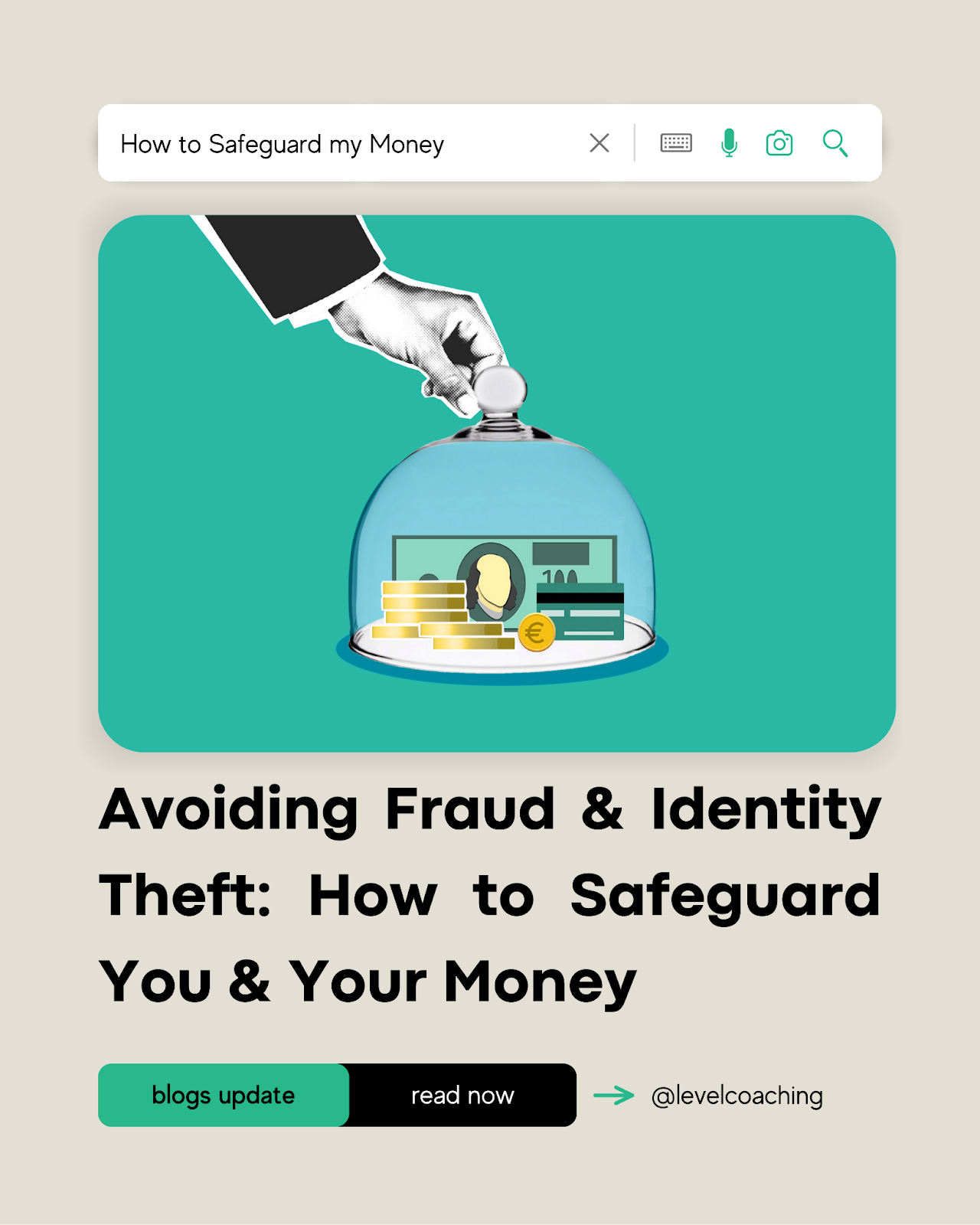
17 Sep Avoiding Fraud and Identity Theft: How to Safeguard You and Your Money
Fraud and identity theft are more common than ever. With scams becoming increasingly sophisticated, knowing how to protect your personal information and finances is essential. The good news? With the right habits and guidance, you can stay secure and confident in every financial decision.
Protecting Your Personal Information
Your personal data is like gold to scammers. Even small pieces—like your phone number or birthdate—can be enough for criminals to piece together your identity.
Smart Protection Tips:
- Strong Passwords: Use unique passwords for each account. A password manager helps you keep track safely.
- Two-Factor Authentication: Add an extra layer of security wherever possible.
- Beware of Links: Don’t click suspicious links in emails or texts. Always type the company’s URL directly.
- Secure Devices: Avoid giving apps or people remote access to your phone or computer unless you initiated it with a trusted provider.
What You Should—and Shouldn’t—Share
Not all information is created equal. While businesses may need some details, others should never be shared.
Safe to Share With Trusted Institutions:
- Last four digits of your SSN
- Date of birth (for banks or healthcare providers)
- Account numbers through secure, official platforms
Never Share:
- Full Social Security number over email or text
- Passwords or PINs
- Remote access to your devices unless you initiated and verified the provider
Are Money-Sending Apps Safe?
Venmo, Zelle, and Cash App are convenient but require caution.
Safety Rules for Money Apps:
- Only send money to people you know personally.
- Avoid using apps for online marketplace purchases.
- Remember: once money is sent, it’s usually irreversible.
Debit Card vs. Credit Card: Which Is Safer?
Both payment methods have pros and cons, but credit cards generally offer stronger fraud protection.
- Debit Cards: Linked directly to your bank account; stolen funds disappear instantly and may take time to recover.
- Credit Cards: Typically offer zero-liability policies and faster dispute processes, making them safer for most transactions.
Travel Safety: Protecting Your Money on the Go
Scammers often target travelers. Stay secure with these simple practices:
- Use credit cards instead of debit for bookings and purchases.
- Carry an RFID-blocking wallet for your cards and IDs.
- Avoid logging into financial accounts on public Wi-Fi.
- Notify your bank of travel dates to prevent account freezes.
The Power of Freezing Your Credit
One of the most effective ways to prevent identity theft is by freezing your credit. A credit freeze doesn’t affect your current accounts, but it stops thieves from opening new loans or credit cards in your name.
Benefits of Freezing Your Credit:
- Stops new accounts from being fraudulently opened.
- Adds a strong barrier of protection against identity theft.
- Can be lifted temporarily if you need to apply for new credit.
At Level Coaching, we make this even easier. If you want, we can freeze your credit for you or guide you step by step through the simple process. It’s one of the most powerful and stress-free ways to secure your financial future.
Final Takeaway
Fraud and identity theft can feel overwhelming, but they don’t have to control your financial journey. By practicing safe habits, choosing the right payment methods, staying cautious while traveling, and leveraging tools like credit freezes, you can safeguard your money and your peace of mind.
At Level Coaching, we’re here to help you stay protected, confident, and empowered every step of the way.
Written by Nichole Olds,
September 2025

